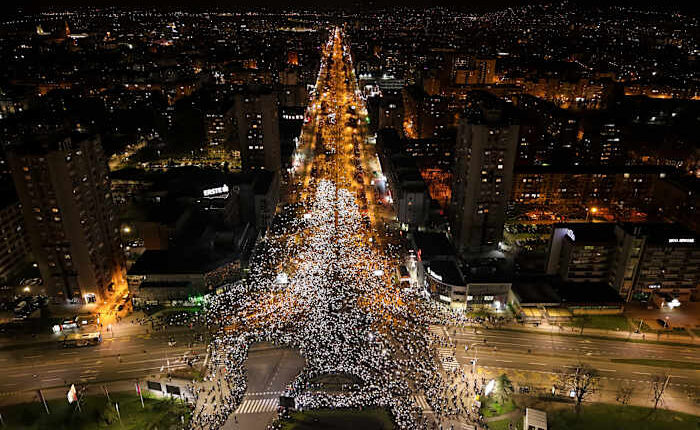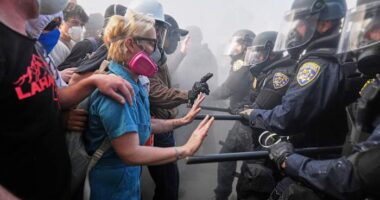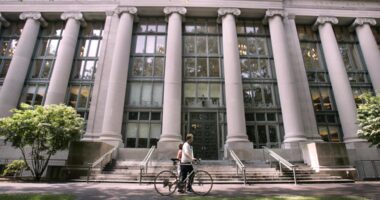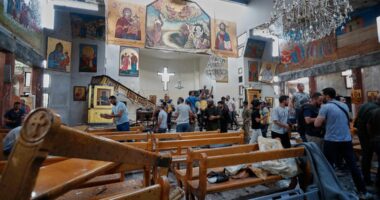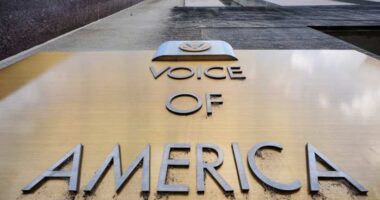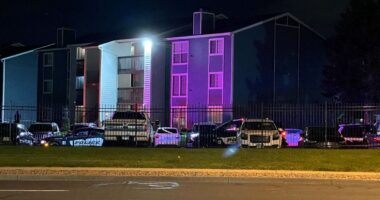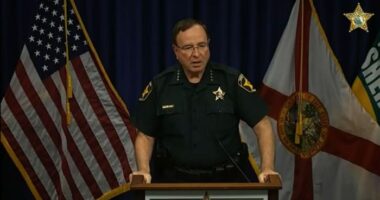
Serbia’s students will take charge of organizing large protests and blockades on three bridges crossing the Danube River in Novi Sad, northern Serbia, this Saturday. This event aims to commemorate the tragic incident that occurred three months ago when a concrete canopy collapsed at a local train station, resulting in the loss of 15 lives.
The collapse on November 1 brought about a significant response, leading to a widespread anti-corruption movement and continuous protests organized by students against the ruling authorities in the Balkan state. These demonstrations have been ongoing for several months.
The prevailing belief among many Serbians is that the collapse was primarily a consequence of corrupt activities within the government, particularly in the context of a major infrastructure project involving Chinese state-owned companies.
Critics believe graft led to a sloppy job during the reconstruction of the Novi Sad train station, poor oversight and disrespect of existing safety regulations.
Tens of thousands of people are expected to converge in Novi Sad later on Saturday for the blockades, dubbed “Three Months — Three Bridges.” The blockade of one of the bridges is set to extend until Sunday.
University students have taken a leading role in the protests that have developed into the most serious challenge in years to the country’s powerful populist leader, President Aleksandar Vucic.
Persistent demonstrations forced the resignation of Prime Minister Milos Vucevic earlier this week and various concessions from the populist government as it seeks to quell growing resistance.
Thousands of people already came out on Friday evening in Novi Sad to welcome hundreds of students from Belgrade who had walked for two days to join the bridge blockades.
Students from Novi Sad put a small red carpet out for the Belgrade crowd as thousands waved and many cried, illustrating high emotions over the November accident and the feeling of solidarity and togetherness in the protests.
Apart from Novi Sad and Belgrade, daily protests and traffic blockades have been held throughout Serbia, often marred by incidents, including cars ramming into protesters.
One such incident happened in Belgrade on Friday, leaving two women injured after they was struck by a car.
Carrying wreaths with the names of the 15 victims, the students from Novi Sad and Belgrade on Friday also walked together to the station building to honor the people who died in the accident.
Along the way on their 80-kilometer (50-mile) journey to Novi Sad on Thursday and Friday, the students from Belgrade were greeted by cheering citizens who honked their car horns or came out of their homes to offer food and drinks.
Hundreds more people on bicycles and motorcycles have headed separately toward Novi Sad on Friday while Belgrade’s taxi drivers said they would come too and give the marchers a lift home on Sunday.
Dung Grabos, student from Novi Sad said he felt proud of both the people from Novi Sad and Belgrade: “It’s not easy. They limp, they have blisters, their feet hurt.”
___
Associated Press writers Jovana Gec and Dusan Stojanovic contributed to this story from Belgrade, Serbia.
Copyright 2025 The Associated Press. All rights reserved. This material may not be published, broadcast, rewritten or redistributed without permission.
